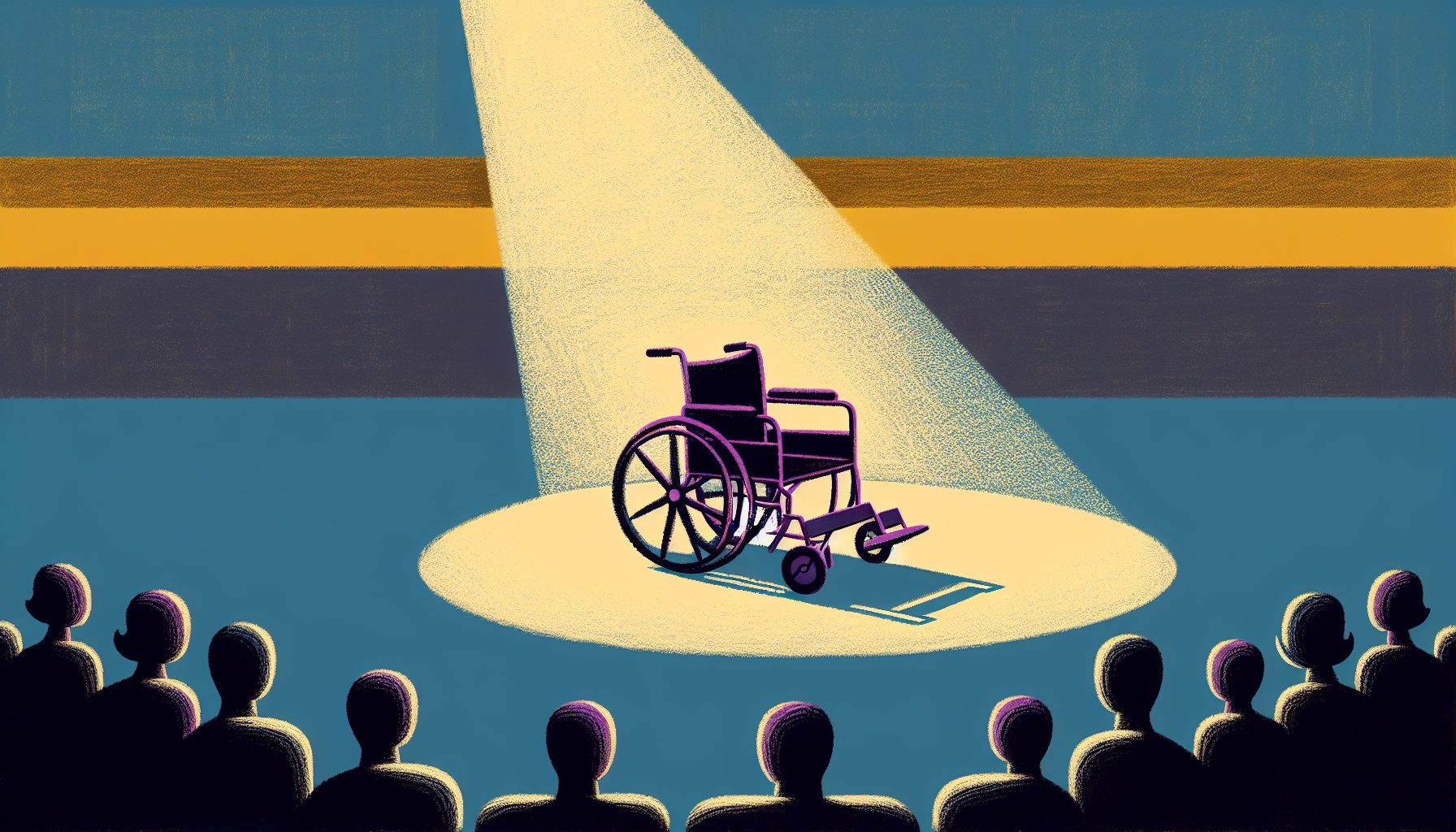More than 2,500 prominent figures in the UK’s arts sector, including leaders from the National Theatre and Royal Shakespeare Company, have signed an open letter expressing concerns that Labour’s proposed changes to the Access to Work scheme could exclude disabled individuals entirely from the workforce.
Indhu Rubasingham, the artistic director of the National Theatre, along with Tamara Harvey and Daniel Evans, co-artistic directors of the RSC, are among the signatories warning the government of potential setbacks to decades of progress in workplace inclusion. Addressed to the Department for Work and Pensions (DWP) and the Department for Culture, Media, and Sport (DCMS), the letter highlights the risk of ‘devastating impacts’ on employment rates for disabled people, especially within the cultural sector, due to reforms suggested in the Pathways to Work green paper.
The letter states, “We have worked for decades to ensure that the sector can provide better work for disabled people, and now the proposals threaten that progress. There is a clear need to reform Access to Work, but this must be based on constructively supporting disabled people into meaningful work, not a cost-cutting exercise.”
The Access to Work scheme, managed by the DWP, provides financial assistance to help disabled individuals enter or maintain employment. The grants cover necessary adjustments, such as specialised equipment, transport, and support workers, which often go beyond employers’ legal responsibilities ([source](https://bmmagazine.co.uk/news/uk-businesses-say-disabled-people-face-barriers-when-job-hunting/)).
However, there are reports of the scheme being quietly scaled back. Disability rights advocate and comedian Jess Thom recently disclosed a 61% cut to her Access to Work payments, hindering her ability to continue working.
Tom Ryalls, one of the letter’s organisers, noted that the current consultation process and Thom’s experiences have heightened concerns. “There’s the consultation, but this is also about unspoken cuts that are already happening,” he told The Guardian.
Statistics reveal that disabled individuals are underrepresented in creative industries, with less than 15% of the workforce identifying as disabled, compared to approximately 23% in the general working population. The percentage is even lower, at 9%, in organisations funded by Arts Council England.
The letter urges the government to delay any reforms until the Office for Budget Responsibility releases its assessment. It also demands that ministers protect and improve the Access to Work programme, ensuring no changes undermine disabled people’s inclusion in cultural life. The call includes direct consultation with those affected, particularly disabled artists and cultural employees.
In response, a government spokesperson stated: “We are determined to create a welfare system that helps people into work and out of poverty. Our welfare reforms include a £1bn-a-year package to support disabled people who can work, so they have fulfilling careers in the arts and other sectors.”
Nonetheless, campaigners insist that the promises of opportunity must translate into effective protective measures. “The arts sector has led the way in creating more inclusive workplaces,” said one signatory. “These proposals risk reversing hard-won gains and excluding the very voices we need to hear.”
Read more: [Labour’s Access to Work reform plans ‘risk excluding disabled people from the workforce’, say arts leaders](https://bmmagazine.co.uk/news/labours-access-to-work-reform-plans-risk-excluding-disabled-people-from-the-workforce-say-arts-leaders/)




